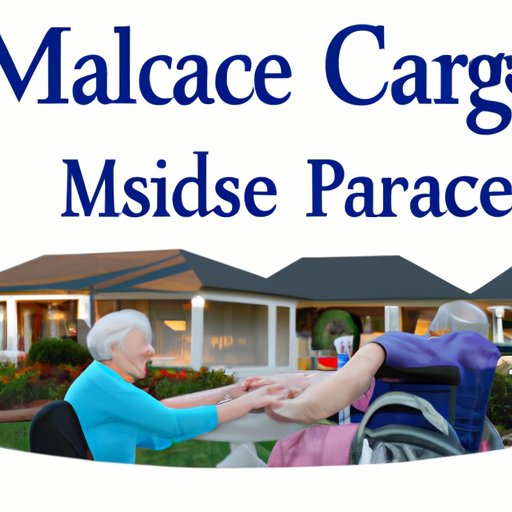Introduction
Hospice care is an important option for those who are facing a terminal illness. It provides comfort and support to those who are nearing the end of their lives. But it can be expensive, and many people wonder if Medicare will cover any of the costs associated with hospice care. In this article, we will explore whether or not Medicare will pay for hospice care in a nursing home.
Exploring the Benefits and Limitations of Medicare Paying for Hospice Care in Nursing Homes
Medicare does provide coverage for hospice care in nursing homes. Medicare covers the services of a hospice team, which includes a doctor, nurse, social worker, bereavement counselor, and other professionals. The team works together to provide physical, emotional, and spiritual care to the terminally ill patient. Medicare also covers medications, medical equipment and supplies, and respite care for family members.
However, there are some limitations to Medicare coverage for hospice care in nursing homes. For example, Medicare does not cover room and board in the nursing home. Additionally, Medicare does not cover personal care services such as bathing, dressing, and grooming. These services must be provided by the patient’s family or a private caregiver.
Examining the Cost-Benefit Analysis of Medicare Paying for Hospice Care in Nursing Homes
When considering whether or not to use Medicare to pay for hospice care in a nursing home, it is important to look at the cost-benefit analysis. On the financial side, Medicare pays for the hospice team’s services and medications. This can save money compared to paying out of pocket for these services. However, Medicare does not cover room and board, so this is an additional cost that must be taken into account.
On the non-financial side, Medicare pays for the services of a hospice team. This team is dedicated to providing comfort and support to the patient and their family during this difficult time. Additionally, Medicare helps ensure that the patient receives the best possible care during their final days.

Understanding the Guidelines of Medicare Paying for Hospice Care in Nursing Homes
In order for Medicare to pay for hospice care in a nursing home, certain criteria must be met. The patient must be eligible for Medicare Part A and have a terminal illness with a prognosis of six months or less. The patient must also agree to forgo curative treatment for the terminal illness and receive only palliative care. Finally, the patient must choose a Medicare-certified hospice provider.
Once these criteria have been met, Medicare will cover the services of a hospice team, medications, medical equipment and supplies, and respite care for family members. However, as mentioned earlier, Medicare does not cover room and board or personal care services.

Comparing Medicare Options for Paying for Hospice Care in Nursing Homes
When it comes to paying for hospice care in a nursing home, there are two main options: traditional Medicare and Medicare Advantage plans. Traditional Medicare covers the services of a hospice team, medications, medical equipment and supplies, and respite care for family members. Medicare Advantage plans may offer additional benefits such as vision, hearing, and dental coverage, as well as expanded coverage for prescription drugs.
In addition to traditional Medicare and Medicare Advantage plans, there are other payment options available for hospice care in nursing homes. These include Medicaid, long-term care insurance, and private pay. Each option has its own set of eligibility requirements and benefits, so it is important to research each option carefully before making a decision.
Conclusion
In conclusion, Medicare does provide coverage for hospice care in nursing homes. The coverage includes the services of a hospice team, medications, medical equipment and supplies, and respite care for family members. However, Medicare does not cover room and board or personal care services. When deciding how to pay for hospice care in a nursing home, it is important to consider both the financial and non-financial impacts. There are several payment options available, including traditional Medicare, Medicare Advantage plans, Medicaid, long-term care insurance, and private pay. It is important to research each option carefully before making a decision.
For more information on Medicare coverage for hospice care in nursing homes, visit the official Medicare website.
(Note: Is this article not meeting your expectations? Do you have knowledge or insights to share? Unlock new opportunities and expand your reach by joining our authors team. Click Registration to join us and share your expertise with our readers.)
